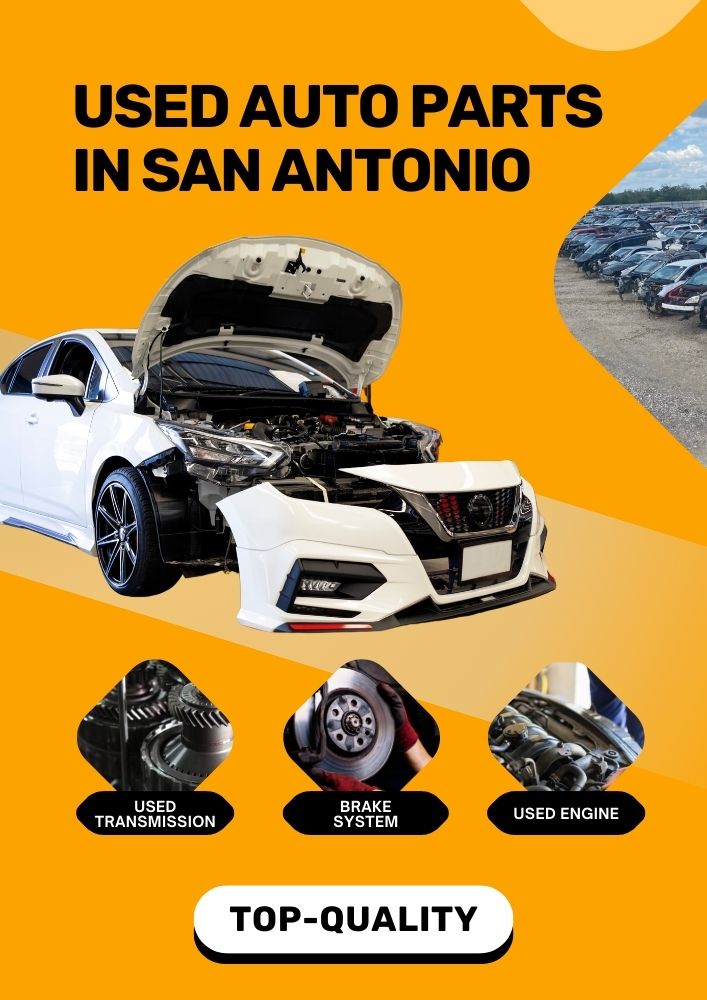The automotive salvage industry has experienced fluctuating trends, with major players constantly adapting to market dynamics. LKQ Corporation, a prominent name in the sector, recently announced its third-quarter underperformance, which led the company to revise its quarterly guidance. This article delves into the causes behind LKQ’s revised guidance and its potential impact on the salvage auto parts market.
What Led to LKQ’s Underperformance in Q3?
For businesses operating in the automotive salvage industry, quarterly performance metrics are paramount indicators of success and market health. Several factors contributed to LKQ’s underperformance in the third quarter, necessitating a revision of their financial outlook.
Market Conditions: The automotive parts industry is heavily influenced by economic conditions. Supply chain disruptions, fluctuating demand, and changes in consumer behavior have created an unpredictable market landscape. LKQ’s struggle to navigate these challenges is a primary reason for the underperformance.
Operational Hurdles: Like many companies, LKQ faced operational challenges, including labor shortages and logistical glitches. These hurdles directly impacted their ability to meet market demand efficiently.
Competitive Pressures: Increased competition from other players in the salvage auto parts market also pressured LKQ’s performance, compelling them to rethink their strategies.
For a more detailed analysis of LKQ’s Q3 underperformance, visit the source article.
Revisiting LKQ’s Guidance: What Does It Mean?
When a company revises its guidance, it essentially adjusts its forecasted financial and operational performance metrics. The implications of such a revision can be significant, affecting investor confidence, stock prices, and market strategies.
Investor Reaction: Revisions in guidance often lead to a ripple effect in the stock market. Investors may react by selling off stocks, leading to a drop in market value. LKQ’s revised guidance did lead to investor concerns, reflecting in the stock market.
Strategic Adjustments: Companies often adjust their strategies in response to revised guidance. For LKQ, this could mean a revamp of their operational protocols, exploring new markets, or forging new partnerships to stabilize their market position.
Implications for the Salvage Auto Parts Market
The salvage auto parts market is a complex web of suppliers, distributors, and consumers. LKQ’s revised guidance can have multiple ramifications for this ecosystem.
Supply Chain Dynamics
One of the immediate impacts is on the supply chain. As LKQ navigates through its operational challenges, the availability and pricing of salvage auto parts could be affected. This could lead to:
- Price Adjustments: Fluctuations in supply can cause volatility in prices. With LKQ working through its Q3 hiccups, there could be temporary price hikes or drops in the salvage parts market.
- Inventory Management: Other players in the market might need to adjust their inventory management strategies. Stockpiling certain parts or finding alternative suppliers could become necessary for maintaining business continuity.
Consumer Behavior
Consumers, aware of LKQ’s market position and reputation, might also adjust their behavior based on the revised guidance.
- Delayed Purchases: Some consumers might delay their purchases, anticipating further clarity on market conditions. This could lead to a temporary lull in market activity.
- Exploring Alternatives: Others might seek alternative sources for salvage auto parts. Platforms like GiantImports provide a wide range of used auto parts, offering consumers viable options during such times.
Strategies for Stakeholders
For stakeholders in the salvage auto parts market, navigating through LKQ’s revised guidance involves strategic planning and proactive measures.
Dealers and Distributors
Dealers and distributors should:
- Diversify Supplier Base: Relying too heavily on a single supplier can be risky. Expanding the supplier network can provide more stability.
- Enhance Customer Engagement: Keeping customers informed about any potential disruptions and offering alternative solutions can build trust and loyalty.
Repair Shops
Repair shops that rely on a steady supply of salvage parts from LKQ should consider:
- Advanced Inventory Planning: Stocking up on high-demand parts can buffer against supply chain disruptions.
- Exploring Alternative Suppliers: Platforms like GiantImports offer an extensive inventory of used auto parts, ensuring continuous business operations.
The Road Ahead: LKQ’s Recovery and Future Prospects
Despite the third-quarter underperformance, LKQ remains a formidable player in the salvage auto parts market. Their ability to adapt to market changes will be crucial in regaining their standing. Key focus areas for their recovery include:
Operational Efficiency: Improving logistics, overcoming labor shortages, and enhancing overall operational efficiency will be critical for LKQ.
Market Adaptation: Staying responsive to market conditions and being proactive in strategizing can help LKQ navigate through future uncertainties.
Innovation and Partnerships: Investing in technological innovation and forging strategic partnerships could provide new avenues for growth and stability.
Conclusion
LKQ’s revised Q3 guidance serves as a reminder of the volatile nature of the salvage auto parts market. For stakeholders—from investors to repair shops—the key lies in strategic adaptation and proactive planning. By understanding the underlying causes and potential impacts, they can better navigate the industry’s ebbs and flows, ensuring resilience and growth. For added resilience, stakeholders can explore alternative suppliers such as GiantImports, which offer extensive inventory and reliable service.
For the original source of this analysis, visit Recycling Today.





